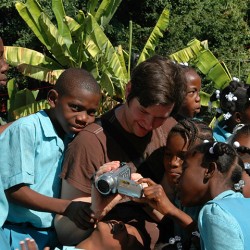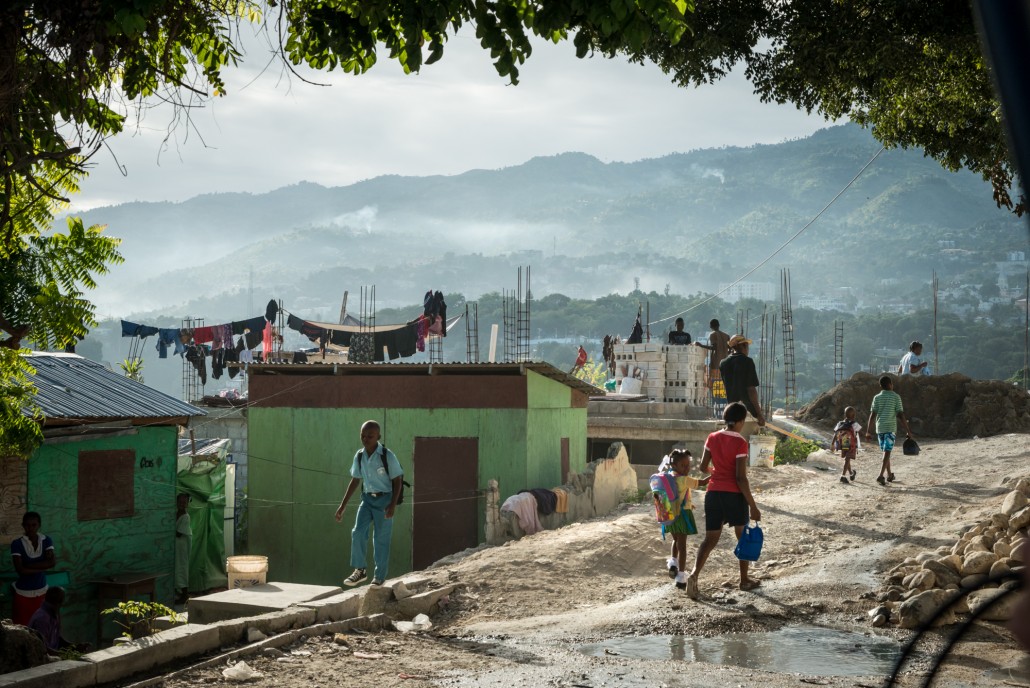Making Way for Local Efforts
Many of the great experiences in my life have seemingly happened by accident, but my foray into humanitarianism was serendipitous, or dare I say, some kind of divine guidance. Now that you are done rolling your eyes, let me explain. I was neither led to humanitarian work through academia nor the preoccupation of religiousness. To be honest, I am a high school dropout and I had severed my ties to the church at a young age. Prior to meeting Madam Rea Dol from SOPUDEP eight years ago, the conceptualization of extreme poverty and the need to find a way to offer myself up as support to quell this problem, was not even a blip on my proverbial radar.
The events that led me to be an advocate and supporter of grassroots organizations in Haiti, and around the world, are still hazy. I am certified ADD. Many things that come across my plate seem extremely important for a short amount of time, but quickly fade into a new preconceived fad. So surprisingly, what started as a simple Google search on the Caribbean in the winter of 2007, quickly escalated into a heartfelt fascination about Haiti, and a need to implement my services to help in anyway I could.
The weeks that followed, that search engine took me through a series of links that led me to people who could offer up pertinent information. One thing that had occurred to me during this searching, was that a buck could be spent a whole lot better at a ground level movement, while leaving communities in charge of their own destiny… I don’t know, call me optimistic, or idealistic, but this rose to the top of the checklist of how I wanted to help. Being a creative thinker, I was simply trying to seek an alternative to the norm.
To my eyes, the multinational sector didn’t seem to very efficient at eradicating poverty, or instilling any kind of independence or hope in the people they were supposed to be serving. My vague inkling of small grassroots organizations being able to take a large roll in shaping community sustainability grew in leaps when I came across SOPUDEP. After two hours of speaking to SOPUDEP Director, Madam Rea Dol for the first time in Haiti, I knew that I was on the right path. I would start The Sawatzky Family Foundation, dedicated to providing support for grassroots organizations in Haiti, with SOPUDEP as our primary recipient.
Like most “first-worlders,” coming to a poverty-stricken country such as Haiti, I had many preconceived ideas of what I could offer in intellectual support. It quickly became clear that I had to check my ego and let them run with the ball. And here began the struggle. My roll was that of supporter and advocate of Haitian grassroots, but the language I was speaking was foreign to many back home. People simply couldn’t grasp that I was essentially funneling money to an organization that was founded and run by the very people who they saw as needing our intervention.
It became clear, that inspiring stories of ground up community efforts weren’t enough. It also had to be about educating individuals on the roots of third-world poverty; which to their surprise wasn’t because of a reluctance to adopt Western European economic traditions. It was this long-standing economic system, that had put a strangle hold on people, generation after generation. Shocker? Not so much anymore. But eight years ago, these were fighting words among certain circles. I felt for a while, that I might be a member of a very select crowd who believed that poverty stricken countries could find there own way out, if we only let them.
After the devastating Haiti earthquake that occurred on January 12th, 2010, there was a media blitz, with multinational NGO’s and first response organizations thrusting into the spotlight. But there was a more important story going largely unnoticed by international reporters; that local organizations were coming together to bring assistance to their communities when no one else was. When I heard that a small crew from the New York Times was documenting the work that SOPUDEP was doing to bring relief to their community, I was… pleasantly shocked.
When A Path Appears aired, I was elated. A Path Appears is testament that the language of charity is changing. It’s less about our implementation and more about us being a shoulder to lean on for people.
Support isn’t blind faith, but it takes educating. Wanting to help is a first step, but being sensitive enough to leave those community-embedded organizations to lead the change is essential, and more importantly, sustainable. Beneficial change comes from genuine solidarity, developing relationships, and an ability to keep an open mind and heart. It is here that we find ourselves building a new path, looking too a horizon that offers hope for all.
About the blogger:
Ryan Sawatzky is the founder and director of the Sawatzky Family Foundation which was born from his passion for social justice, local grassroots projects and developing opportunities for a hand up, as opposed to the hand out that perpetuates a cycle of aid. The Foundation’s first collaborating organization, which is the foundation’s biggest recipient of funds, is SOPUDEP. Their mandate is to provide accessible education to children whose parents cannot afford the regular high price of regular tuition.





